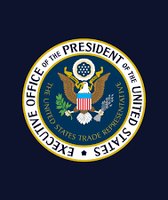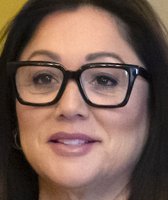Stand up for the facts!
Our only agenda is to publish the truth so you can be an informed participant in democracy.
We need your help.
I would like to contribute
As he moves closer to declaring a presidential bid, Gov. Scott Walker often tells audiences a story about his first visit to Independence Hall in Philadelphia and his reverence for the founding fathers.
In closing a June 20, 2015 speech to the Faith & Freedom Coalition in Washington, D.C, Walker repeated the story, describing how, as a boy, he viewed the founding fathers "like superheroes."
He was awed when, in 2011, he stepped into the building where both the Declaration of Independence and the U.S. Constitution were debated and signed.
"And I looked at the chairs and I looked at the desks and it dawned on me," Walker told the audience with a dramatic pause. "These were ordinary people. These were ordinary people who did something extraordinary. You see, they didn’t just risk their political careers. They didn’t just risk their business ventures. These were patriots who risked their lives -- their lives -- for the freedoms we hold dear today."
Walker has many times called the founding fathers ordinary people. And while campaigning, he has emphasized that he himself doesn’t come from wealth or prominence, even bragging that he bought a sweater for a dollar.
Sign up for PolitiFact texts
But his recent retelling of the story seemed contradictory, given that he referred to the founding fathers not only as ordinary, but as businessmen with political careers.
So as Independence Day approaches, we thought we’d offer a little history lesson on who the major founding fathers were, and where they came from.
After consulting several scholars and other sources, we found that -- with some exceptions -- central figures in the nation’s founding generally came from privileged backgrounds, attended college at a time when very few people did and, by 1776, were prominent and wealthy.
"They weren't ordinary," said Brown University emeritus history professor Gordon Wood, author of "Creation of the American Republic," "Revolutionary Characters: What Made the Founders Different" and other books. "They were the elite of the day, involved in highest levels of the society."
Paul Finkelman, a scholar-in-residence at the National Constitution Center in Philadelphia, was among the historians who agreed with that assessment. But noting that Benjamin Franklin’s formal education ended when he was 10, Finkelman added, "the notion that some of the founding fathers were self-made is true."
While there is no set group of founding fathers, lists of the major ones usually include the following six, as listed by the National Archives’ Founders Online.
Here’s a look at their early years, as well as where they were by 1776:
Adams was born into a "comfortable, but not wealthy, Massachusetts farming family," according to the University of Virginia’s Miller Center, which specializes in political history. His father earned a living as a farmer and shoemaker. His early education was strong enough that he entered Harvard College at the age of 15.
Adams became the lawyer with the largest number of clients in highly competitive Boston, said University of West Georgia history professor emeritus John Ferling, the author of 11 books on the American Revolution and its leaders.
In the Continental Congress -- the body of delegates who represented the people of the colony-states that later became the United States of America -- he was the leader of the faction pushing for independence in 1776. He later became vice president and then the nation’s second president.
Franklin was the son of a man who made soap and candles, which Encyclopedia Britannica terms "one of the lowliest of the artisan crafts" at the time. Franklin learned to read very early and had one year in grammar school and another under a private teacher, but his formal education ended at age 10. At 12, he was apprenticed to one of his brothers as a printer and "taught himself to write effectively." He founded a weekly newspaper at age 16.
Franklin, Finkelman told us, "is the classic self-made American." He eventually became wealthy enough that, at age 42, he became "perhaps the first American we know of to retire," Finkelman said. He was a significant property owner, owned a successful publishing business and was an internationally known scientist. Franklin was a slave owner when he helped draft the Declaration of Independence, but became one of the early abolitionists when, at 81, he was at the Constitutional Convention in 1787, Finkelman said.
Hamilton was born in the British West Indies, the illegitimate son of a "poor itinerant Scottish merchant of aristocratic descent and an English-French Huguenot mother who was a planter's daughter," according to the National Archives. He received a "basic education" and became an apprentice clerk in a mercantile establishment. The proprietor and others recognized Hamilton’s "ambition and superior intelligence" and raised money to further his education, which included time at what became Columbia University in New York.
Finkelman said that after Hamilton joined the Army, he quickly became George Washington’s aide-de-camp with rank of lieutenant colonel. Hamilton wrote pamphlets and newspaper essays favoring independence in 1774 and 1775. In 1789, he became the nation’s first secretary of the treasury. In 1804, he was mortally wounded in a duel with a political rival, Aaron Burr.
Madison’s father inherited and married into substantial wealth, according to the Miller Center. Madison was a "sickly child" who also suffered from psychosomatic, or stress-induced, seizures, similar to epileptic fits, "that plagued him on and off throughout his youth." But by the time he entered what became Princeton University, Madison had mastered Greek and Latin under the direction of private tutors.
Ferling noted that Madison was a leading figure in the Continental Congress and the Constitutional Convention, served as the leader in the First House of Representatives and drafted the Bill of Rights. According to Finkelman, Madison owned at least 100 slaves, inherited wealth and land from his father, and married into wealthy family. He was president from 1809 to 1817.
Jefferson was born on a slave plantation in central Virginia, according to Monticello.org. His father was a planter and surveyor, and his mother was the daughter of a well-known Virginia family. When Jefferson was 14, his father died and he inherited about 3,000 acres of land and about 30 slaves. Jefferson went to the College of William and Mary, then studied and practiced law.
Jefferson was the primary author of the Declaration of Independence. According to Finkelman, he owned two major plantations and 150 to 200 slaves which, by modern standards, means he was a billionaire. Jefferson followed Washington and Adams as the third president.
Washington was a member of Virginia’s gentry, born on his father’s plantation, according to MountVernon.org. Augustine Washington was a leading planter in the area and also served as a justice of the county court.
After Augustine died, when George was 11, "the income from what remained was just sufficient to maintain Mary Washington and her children" and George "undoubtedly helped his mother manage" the plantation where they lived. His formal education ended at age 15, before that of many gentlemen’s sons.
Washington trained as a surveyor before entering the military. Virginia’s governor appointed Washington, at age 22, to command the colony’s army in the French and Indian War, Ferling said. Washington went on to become a wealthy farmer and businessman before being appointed commander of the Continental army in 1775. Finkelman said by this time, Washington owned thousands of acres of land and hundreds of slaves. He served two terms as president.
A footnote before we close:
Some people consider the founding fathers to be a much larger group -- for example, the 55 delegates who attended the Constitutional Convention, from which the U.S. Constitution emerged. That group also was not a common lot, according to the National Archives, which said almost all of them were "well-educated men of means who were dominant in their communities and states, and many were also prominent in national affairs."
"Ultimately," said Terry Bouton, a history professor at the University of Maryland, Baltimore County, "whether you are talking about a main group of six or 60 founding fathers, they were all far from ordinary in terms of income, wealth, education, and social standing."
Our Sources
YouTube, Our American Revival video of Gov. Scott Walker speech at South Carolina Freedom Summit (quote at 20:50), May 9, 2015
C-SPAN, video of Gov. Scott Walker speech to Faith & Freedom Coalition (quote at 30:00), June 20, 2015
PolitiFact National, "Were the founding fathers active cockfighters?" (False), May 1, 2014
Email exchange, Organization of American Historians Director of External Communications Susan Sullivan, May 19, 2015
Interview, senior fellow at at the University of Pennsylvania and a scholar-in-residence at the National Constitution Center Paul Finkelman, May 20, 2015 and June 26, 2015
Email interview, University of West Georgia history professor emeritus John Ferling, May 20, 2015
Email interview, University of Maryland, Baltimore County history professor Terry Bouton, May 20, 2015
Email interview, Brown University emeritus history professor Gordon Wood, May 22, 2015
University of Wisconsin-Madison Center for the Study of the American Constitution, biographies of the founders
Email exchange, Gov. Scott Walker campaign spokesman Kirsten Kukowski, May 22, 2015
MountVernon.org, George Washington biography
Monticello.org, Thomas Jefferson biography
University of Virginia Miller Center, James Madison biography
University of Virginia Miller Center, John Adams biography
National Archives, Alexander Hamilton biography
Encyclopedia Britannica, Benjamin Franklin biography




























